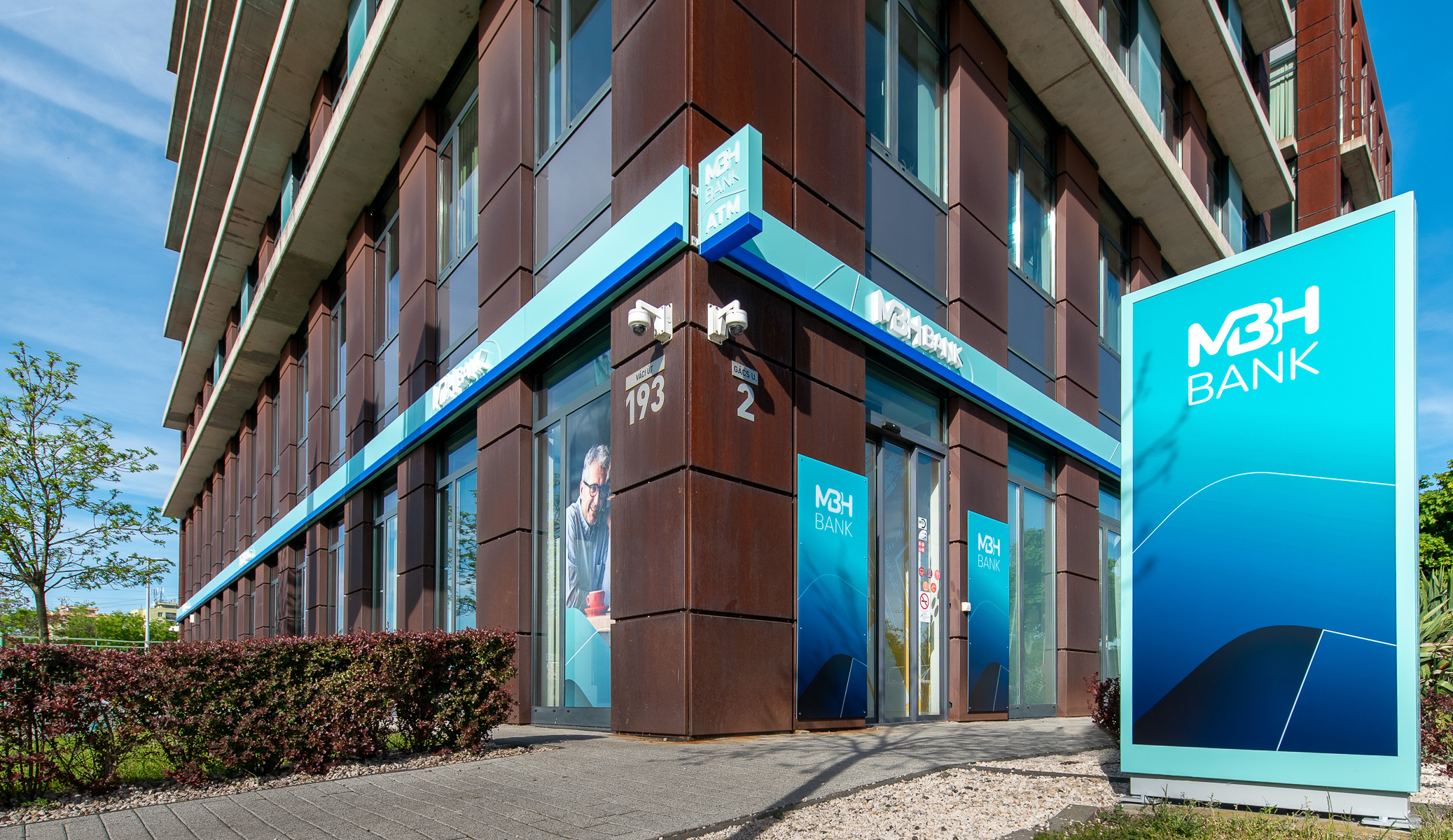No more taxes, s'il vous plaît - French companies and Hungary's unorthodox economic policy

Hard times require tough decisions. In the dark days of the crisis, Hungary implemented unorthodox measures to meet deficit targets, which in many cases hit foreign companies – including French-owned ones – the hardest.
The “economic freedom fight” that the government declared after winning a two-thirds majority in 2010 was supposed to mean that the negative effects of the ongoing global economic crisis and the burdens left here by the Socialist governments that had ruled the country for the preceding eight years would fall not on Hungarian taxpayers but big companies instead. Without going into analysis of how realistic it is to significantly increase financial burdens on suppliers and not indirectly contribute to price hikes through this measure, let us focus on the most spectacular elements of this unorthodox economic revolution: the so-called crisis taxes. The Fidesz-KDNP government levied a special tax on the banking, energy, telecommunication and retail industries in October 2010 in order to meet deficit targets.
All about money
Those saying that the IMF and the EU apply stricter rules against Hungary than some other countries see their conspiracy theory supported by the following train of thought: the Hungarian government has caused a lot of trouble to multinational companies, including French-owned ones, and the leaders of the above-mentioned international organizations are trying to alleviate this offense against certain financial interests by messing with Hungary.
Be that as it may, mortgage loaner UCB Ingatlanhitel, owned by the French BNP Paribas, in May 2011 announced it would cease operations in Hungary. Also, French-owned AXA suspended its property mortgage loaning activity in Hungary as of December 15, 2011. The company did not cite a reason and also declined to answer the Budapest Business Journal’s questions, but the HUF 9 billion loss with which AXA closed 2010 speaks for itself. The bank levy, later compounded by the early repayment scheme for FX mortgages, may well have been behind AXA’s decision. Hungarian bank losses generated by the early repayment scheme, which enabled FX borrowers to repay their debts before the end of February at a fixed exchange rate well below market prices, is estimated to have reached up to HUF 260 billion.
Energy sector
With the extra tax on the energy sector, all energy companies have to pay 1.05% of sales regardless of size. Although the measure obviously hit the French-owned EdF Group, this is not the company’s biggest problem in the Hungarian market. As Jean-Noël Reimeringer, the head of Budapest Erőmű Zrt, a company majority owned by EdF, previously pointed out, “the unpredictable regulatory environment is far from being investor-friendly”, adding that the biggest problem is the heating price regulation launched in 2011, which leaves only a narrow profit margin for suppliers and does not draw a distinction between free-market sales and residential sales. “The company’s aim is obviously not to be in the red,” Reimeringer said in October 2011, adding that his company “is analyzing the possible strategies but it is already certain that among the given circumstances the group cannot operate in Hungary in the long-term”.
Everyday bread
Although the retail sector had already been hit hard by the crisis, with turnover dropping from €19.9 billion in 2009 to €19.4 billion in 2010, retail companies with sales of more than HUF 100 billion also have to pay a tax of 2.5% of sales. This remains in force until 2014. The French-owned Auchan Magyarország Kft lost HUF 2.7 billion to the crisis tax in 2010 and, based on 2011 sales, the company expects to pay HUF 300 million this year. “It is understandable if the economic difficulties result in special taxes, but it is annoying if this measure is discriminative,” Auchan Magyarország head Dominique Ducoux said two weeks ago, referring to the fact that by setting a minimum limit on sales, the tax obviously targets multinationals and so favors Hungarian retailers.
While the European Commission in March 2012 already announced it would take Hungary to court over the telecom tax, it also raised concerns about the special retail tax in its June letter of formal notice to Hungary. Hungary was given two months to explain how it would make the taxes comply with EU rules. If the response is not satisfactory, the Commission will send a letter of reasoned opinion, the first stage in legal proceedings, which can ultimately lead to the European Court of Justice.
Auchan would obviously be very happy if the European Commission forced Hungary to retroactively abolish the crisis tax but, according to Ducoux, it would already be a relief if the government phased it out from next year.
The crisis tax is not the only government initiative to give Auchan Magyarország – together with three other French-owned companies – a headache. On January 1 2012, the government launched the Erzsébet Voucher for purchasing ready-to-eat meals. Previously, three major firms (Sodexo, Chéque Déjeuner and Edenred, incidentally all in French hands) issued the bulk of food vouchers, which could be given to employees as a tax-free benefit. Now only the state voucher, issued by the National Recreation Foundation, can be given tax-free, while the tax on the other three vouchers is set at 15%.
It is not only that the current situation in the voucher market can easily be defined as a monopoly; another point of contention is that Tesco is the only multinational retail chain that was licensed to accept Erzsébet Vouchers so far, while Auchan’s application has remained unanswered for the past three months. “I hope that a decision will be made to favor customers,” Auchan’s Ducoux said tactfully. The Erzsébet Voucher scheme, however, is already under scrutiny at the European Commission to see whether it complies with EU rules.
Information society
On an imaginary notoriety list of Hungary’s crisis taxes, it is no doubt that the one imposed on the telecom sector would be the first by far. It has made headlines on a weekly basis for almost two years, and although it is less painful for French interests as Hungary lacks French telecom companies, its significance makes it appropriate to give it a place in this summary as well.
The tax, which was also launched in 2010, was designed to raise about HUF 61 billion annually and is due to be reduced by half in 2013 before finally being abolished in 2014. However, as the EU’s telecom rules allow sector-specific charges only to cover the specific costs of regulating the sector and not to generate additional revenue for the central budget, the European Commission in March announced it would take the case to the European Court of Justice. Interestingly, France, along with Spain, has also been referred to the Court over similar one-off taxes.
While experts and analysts keep warning Hungary that such rapid and unexpected introduction of measures like the crisis taxes creates an unpredictable economic environment, which is an especially unsafe game to play at times when FDI is already hard to attract due to the ongoing world economic crisis, the government’s protectionist policy does gain it some support among citizens.
“We fully support the Orbán administration’s aim to impose a special tax on Hungarian and international big companies that skim extra profit, and we insist that the companies fully pay it,” said a letter written in January 2011 and signed by civilians as well as by legal experts and economists. Their statement came as a response to a letter from 13 companies – namely Deutsche Telekom, Rewe, Allianz, E.ON, RWE, EnBW, Spar, OMV, Baumax, CEZ, AXA, ING, and Aegon – that were so outraged by the crisis tax they have to pay in Hungary that they referred the issue to the European Commission in December 2010. Their efforts eventually remained without spectacular success, but the case was inconvenient as Hungary was just about to take over the rotating EU Presidency at that time. However, the international media was so much obsessed with Hungary’s controversial media law in those days that there was not much capacity left to cover the 13 angry companies.
SUPPORT THE BUDAPEST BUSINESS JOURNAL
Producing journalism that is worthy of the name is a costly business. For 27 years, the publishers, editors and reporters of the Budapest Business Journal have striven to bring you business news that works, information that you can trust, that is factual, accurate and presented without fear or favor.
Newspaper organizations across the globe have struggled to find a business model that allows them to continue to excel, without compromising their ability to perform. Most recently, some have experimented with the idea of involving their most important stakeholders, their readers.
We would like to offer that same opportunity to our readers. We would like to invite you to help us deliver the quality business journalism you require. Hit our Support the BBJ button and you can choose the how much and how often you send us your contributions.








